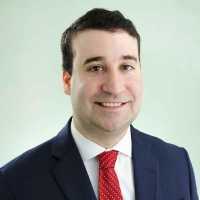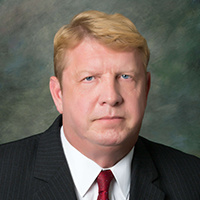Andre O. McDonald | Howard Estate Lawyer | Maryland

Top Local Lawyers
 Premium
Premium
Michael Stuart Katz
Family Legal Advocacy Group
Divorce & Family Law,
10500 Little Patuxent Parkway Suite 650
Columbia, MD 21044
 Premium
Premium
David J Marquardt
DM Family Law
Family Law, Divorce, Alimony & Spousal Support, Child Custody, Child Support
9123 Old Annapolis Road Suite 209
Columbia, MD 21045
 Premium
Premium
Lindsay Aaron Freedman
Freedman Law, LLC
Wrongful Termination, Employment Discrimination, Disability, Family Medical Leave Act (FMLA), Employment
10015 Old Columbia Rd Suite B-215
Columbia, MD 21046
 Premium
Premium
Marc Ominsky
Law Offices of Marc A. Ominsky, LLC
Bankruptcy & Debt, DUI-DWI, Traffic, Litigation, Family Law
5052 Dorsey Hall Dr. Suite 202
Ellicott City, MD 21042
 Premium
Premium
Jason Michael Perash
The Law Office Of Jason Perash Llc
Criminal, Accident & Injury,
9520 Berger Rd Suite 212
Columbia, MD 21046
 Premium
Premium
Jayson Aaron Soobitsky
Law Office Of Jayson A Soobitsky, P.A.
Divorce & Family Law, Child Custody, Child Support, Motor Vehicle,
8850 Columbia 100 Pkwy Ste 303
Columbia, MD 21045
 Premium
Premium
Charles L. Waechter
Law Offices Of Charles L. Waechter
Criminal, Traffic, DUI-DWI, Felony, Internet
1435 Sulphur Spring Road 1st Floor
Baltimore, MD 21227
 Premium
Premium
James E. Crawford
JC Law
Divorce & Family Law, Criminal, DUI-DWI, Felony, Child Custody
999 Corporate Blvd. Ste. 100
Linthicum, MD 21090
 Premium
Premium
Clifford A Wilpon
Ferguson & Wilpon
Accident & Injury, Car Accident, Wills & Probate, Real Estate, Slip & Fall Accident
3406 Olandwood Ct Ste 202
Olney, MD 20832
About Andre
Since Mr. McDonald was admitted to the Maryland Bar, he has served as a volunteer attorney with the Pro Bono Resource Center of Maryland and the Bar Association of Baltimore City Senior Legal Services, where he has helped Maryland low-income seniors with their estate planning needs.
While in law school, Mr. McDonald served as a student attorney with the Washtenaw County Public Defender Office and the SixtyPlus, Inc., Elderlaw Clinic. At the Public Defender Office, Mr. McDonald advocated on behalf of indigent defendants charged with misdemeanors and felonies. Additionally, Mr. McDonald represented low-income seniors with a wide range of civil matters during his tenure with the SixtyPlus, Inc., Elderlaw Clinic. He also served as the court appointed guardianship reviewer for, the Circuit Court of Michigan for, Ingham County, Clinton County, and Eaton County. Mr. McDonald served as an Ambassador for the law school, mentoring newly-admitted first-year law students.
Prior to attending law school, Mr. McDonald served our nation as an Enlisted Officer with the United States Marine Corps. He also served for several years as a Federal Security Officer with the Department of Homeland Security where he trained new officers and mediated and resolved disputes regarding officer disciplinary action or officer-management matters. This breadth of experience helps Mr. McDonald deliver legal services and work with clients in a practical, goal-oriented manner.
I offer an initial free consultation. Please call today to further discuss my fee structure.
Experience
Principal Attorney
McDonald Law Firm, LLC
2015-Present
Columbia, MD
Law Clerk
Washtenaw Public Defender's Office
2014-2014
Ann Arbor, MI
Student Attorney
Sixty Plus, Inc., Elder Law Clinic, Thomas M. Cooley Law School
2013-2014
Lansing, MI
Federal Officer
Department of Homeland Security
2006-2011
Jamaica, NY
Admission

2016

2015
Education
Thomas M. Cooley Law School
J.D.
2014



Recognitions & Achievements
 Associations
Associations
-
Member | Maryland State Bar Association
-
Member | Howard County Bar Association
-
Member | Howard County Estate Planning Council
-
Member | Bar Association of Baltimore County
-
Member | Wealth Counsel
 Honors / Awards
Honors / Awards
-
The Board of Directors' Award Sixty Plus, Inc., Elder Law Clinic2013
-
Melissa Mitchell Leadership Award Western Michigan University Thomas M. Cooley School of Law Moot Court Board2012
Notable Work
 Publications
Publications
Five Things You Need to Know About the Recently Enacted ABLE Act
On December 19, , President Obama signed the Achieving a Better Life Experience Act (ABLE Act) into law. The ABLE Act will allow special needs individuals or certain individuals with disabilities to establish tax-free savings accounts that can be used to cover expenses not otherwise covered by government sponsored programs. These accounts can be a great alternative or supplement to special needs or supplemental needs trusts.
2014
Here are five important things you need to know about the ABLE Act.
1. What is an ABLE account? An ABLE account is similar to a 529 education savings account that helps families save for college. It is a tax-free, state-based private savings account that can be used to pay for the care of special needs individuals. Although income earned in the account will not be taxed, contributions to the account will not be tax deductible.
2. Who is eligible for an ABLE account? Eligibility will be limited to individuals with significant disabilities with an age of onset of disability before turning 26 years of age. If an individual meets these criteria and is also receiving benefits under SSI and/or SSDI, they are automatically eligible to establish an ABLE account. If the individual is not a recipient of SSI and/or SSDI but still meets the age of onset disability requirement, they will still be eligible to open an ABLE account if the SSI criteria regarding significant functional limitations are met. In addition, the disabled individual may be over the age of 26 and establish an account if the individual has documentation of their disability that shows the age of onset occurred before the age of 26.
3. What are the limits for contributions to an ABLE account? Each individual state will determine the total limit that can be contributed to an ABLE account over time. Although we’ll need to wait for regulations to know the exact amount that can be contributed, the Act states that any individual can make annual contributions to an ABLE account up to the gift tax exemption limit (which is $14,000 in ). If the disabled individual is receiving SSI and Medicaid, the first $100,000 held in an ABLE account will be exempted from the SSI $2,000 individual resource limit. If an ABLE account exceeds $100,000, the account beneficiary will be suspended from eligibility for SSI benefits but will continue to be eligible for Medicaid. Upon the death of the account beneficiary, assets remaining in the ABLE account will be reimbursed to any state Medicaid plan that provided assistance from the day the ABLE account was established.
2016
4. What types of expenses can be paid from an ABLE account? An ABLE account may be used to pay for a “qualified disability expense,” which means any expense related to the beneficiary as a result of living with their disability. These expenses may include medical and dental care, education, employment training, housing, assistive technology, personal support services, health care expenses, financial management, and administrative services.
5. When will able accounts be available? Although the ABLE Act was signed into law in December , its implementation was delayed due to the drafting of regulations by the Department of Treasury before states can begin to set up procedures for managing ABLE accounts. At the end of the legislative session, the Maryland State Assembly passed House Bill 431, Maryland Achieving a Better Life Experience (ABLE) Program. This Bill created Maryland’s ABLE program and was signed into law by Governor Larry Hogan. Maryland’s ABLE program becomes operational in !
2014 / 2016 / 2017
Since the money in an ABLE account can grow tax free and be accessed on a tax-free basis for qualifying expenses, these accounts could be a valuable resource for special needs individuals and their families. Although we’re waiting on full implementation of the ABLE program, now is the time to begin thinking about whether an ABLE account is a good fit for your family’s circumstances. Please contact McDonald Law Firm today and Andre O. McDonald, a knowledgeable Howard County special needs planning attorney to learn more about a Maryland ABLE accounts and special needs planning.
Additional Info
McDonald Law Firm, LLC Highlights
Estate, Elder Law, Business, Corporate












